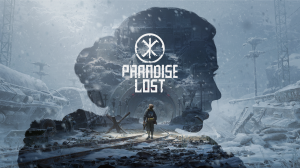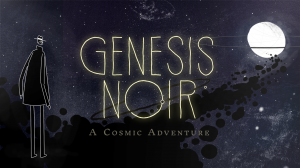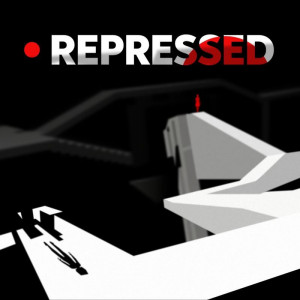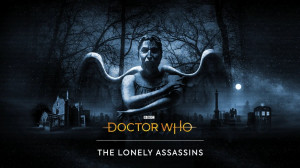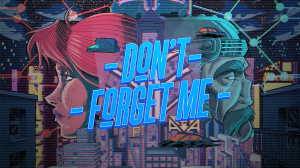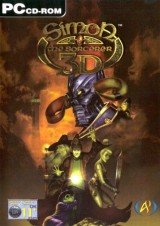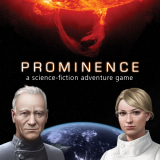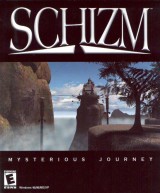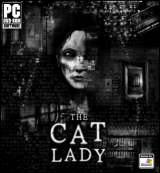Review for Lacuna
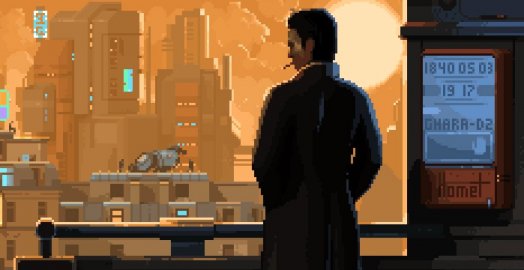
Lacuna is a game about consequence. Every choice made (or ignored) coupled with every puzzle solved (or botched) moves things forward. It’s an easy game to play in that there’s never really a question of what to do; rather, the challenge comes in doing things correctly to achieve the desired outcome. Through a combination of detailed puzzles, excellent writing, and branching pathways, this stylish noir-themed pixel art side-scroller manages to instill a sense of both accomplishment and defeat at times, each of them pulling you further into its fascinating jazzpunk drama.
The main story takes place on the planet Ghara in the city of Louville. Ghara is an Earth-like world in a colonized solar system made up of several other habitable planets. Governments, religious groups, and corporations have long vied for control over these worlds, with the interplanetary drama taking a turn for the worse on Drovia with the “Sector II incident” forty years earlier. In a brief flashback segment, players assume the role of a teenage girl named Mira, who has just landed on the planet with her parents. Shortly after getting settled into her underground living quarters, hell breaks loose in the colony and the civilians are directed into an emergency shelter – if they can make it there in time. This opening section teaches some of the basic gameplay mechanics and serves as an introduction to the universe, but also has profound impacts on the story to follow, depending on your actions.
After this cliffhanger prologue, things pick up in present day on Ghara. Neil Conrad is a detective working for the CDI, a law enforcement body that investigates major crimes. Neil wears a trench coat, has an ex-wife, and smokes an awful lot on the job – suffice to say, he’s a hard-boiled stereotype in the best ways possible. Player input is built into his personality, however: he is a strong character no matter what, but the specific choices you are able to assign to him feel surprisingly natural, and Neil can be just about as rigid or flexible as you wish.
You’ll step into Neil’s shoes just as he gets the call to his next assignment: solving the murder of Drovia’s Foreign Minister. Neil starts his investigation at the Drovian Embassy but soon finds himself running across the city, chasing leads everywhere from the rooms of a fancy hotel to seedy dockside bars. If the culprit isn’t found quickly, the CDI fears an interplanetary war could break out in response. Neither how Mira’s tale is linked to Neil’s nor the motivation behind the minister's killing are immediately evident, and may in fact never be fully linked if you aren’t able to solve the mystery. Failure is most definitely an option here.
The narrative is filled with twists and turns, and while the investigation starts by focusing on a Drovian independence movement, it quickly delves into more personal territory, with Neil finding himself neck deep in an interplanetary terrorism plot. The choices you make have a definite impact on the direction of the story, whether in conversation or in minor side activities, like deciding if you’ll help an old man find his missing boat or meet an old colleague for breakfast instead of just rushing to the next crime scene. Some are much more personal, such as whether you let Neil’s teenage daughter Laura go to a party with her school friends, suggest that your ex-wife Catherine keep her at home, or forgo the opportunity to stop by and see your family entirely. The repercussions of your decisions may not be initially evident, but later on you may find yourself wishing you’d paid more attention to details like these as you get sucked further into the case.
Some dialog trees are timed, such as when negotiating with a terrorist during a shootout, meaning you don’t always get to carefully consider the repercussions of your words. Needless to say, there is quite a bit of replay value packed into Lacuna, and due to the autosave feature, you’ll have no choice but to live with your choices and keep moving forward.
During your investigation, you will travel to several distinct settings across Louville. These locations are small in size, and you can run through any of them in a minute or so. Each major locale is linked by subway, and since Neil is a man who loves taking the train, this is your sole means of travel to any place you can’t reach on foot. Trains only appear at the station when you have completed your allotted goals, and they only take you to the next destination, so there’s never any confusion about where to go. At certain stops, however, Neil can sometimes take a break to do non-detective activities (if there are any available in the area), including visiting his ex-wife and their daughter, or chilling out with his pet lizard Horace in his apartment.
While I spent an inordinate amount of time chasing personal side stories my first time through, trying to reconstruct Neil’s social life (and giving Horace lots of pets), I utterly failed at a number of his detective duties, being unable to assemble the right clues for presentation to Neil’s peers. As a result, I never revealed the link between the incident from the prologue and the assassination plot, though I wouldn’t say this resulted in an unhappy or “bad” ending by any means. My second playthrough proved much more successful in terms of Neil’s job security, in part because of my existing knowledge of events but also because I focused on collecting every bit of news and information I could. There are a lot of details to digest for those who take their time and don’t mind of a fair bit of reading.
Lacuna’s gameplay could best be described as a side-scrolling investigative puzzler. It supports both keyboard/mouse and Xbox One controller natively, and I found the gamepad perfectly suitable for play, with the left stick used to move Neil around. Yellow borders highlight people or objects you can interact with, and only once did I lose track of Neil in the clutter of pixels when trying to follow a certain character. The default action button does everything from interacting with objects/people to navigating through dialog. Holding the right trigger causes Neil to jog, while X brings up a number pad, used for inputting passcodes in certain scenarios. Another button spawns an investigation bubble around Neil, highlighting points of interest related to his case that can easily be scrolled through. Neil cannot run while in this mode, however, forcing you to slow down. The Start button brings up Neil’s PDA, and Select calls up the main menu, which handily lets you know when the game last saved.
Opening Neil’s PDA for the first time can be a bit overwhelming. Tabs for Conversations, Clues, News, Sheets, Emails, and a Glossary are stacked in the left-hand margin, with the details of the selected tab filling the right-hand side of the screen. Sheets—essentially multiple-choice tests relating to the crime scene or investigation at hand— are Lacuna’s main form of puzzle and represent the crux of the game. They also have a major impact on the plot. Other characters, like Neil’s colleagues at the CDI, will often accompany him, transferring Sheets to his PDA for you to fill out. A prompt in the upper right-hand corner of the screen lets you know each time this happens, and a new Sheet is connoted with an exclamation mark on the PDA tab, letting you know it is a recent addition.
When you first open a Sheet, all possible answers are available to choose from. This is a bit disorienting, as Neil may not have gathered all the evidence or spoken to every witness yet, making their inclusion seem premature. (I wonder whether a question mark in place of details not yet known would have been better.) The game even sometimes allows you to submit a Sheet before finishing your investigation, meaning sloppy detective work or kneejerk conclusions can backfire.
All dialog is recorded on Neil’s PDA under the Conversations tab, so you can go back and reread transcripts to look for clues you may have missed the first time around. Clues are notes Neil takes from crime scenes that he deems pertinent to the case, filed for ease of reference. News feeds can be collected from billboards, and are essential for getting a broad picture of the happenings on Ghara and the other planets. Points of interest are sometimes highlighted in yellow in these documents, though that’s not to say you can simply scroll through the pages to find the highlighted bits and assume they are the right answer to fill in on a related Sheet. Sheets take a lot of reading and reflection, and which things are relevant to the investigation and which are not aren’t always clearly marked.
Sheets in the first half of the game aren’t overly cryptic, and as long as you pay careful attention to details, the answers come easily. However, later on they become longer, and pulling all the details together requires some real detective work. There is a lot of reading here, and you might need to get out a notepad of your own to string together all of the suspects and motives. In fact, the game goes so far as to give Neil the option to sit down and smoke at certain chairs or tables and go over his notes. (You don’t need to be sitting down to open your PDA, but it does make you feel cool.)
Even if you submit a Sheet with incorrect information, the story moves forward anyway. Early on, I botched one regarding the description of the shooter responsible for taking out the Drovian Minister. When the sting operation to catch the person went down the next day, things went south quickly, and an officer ended up getting shot, prompting a still-frame cinematic of Neil riding the train home, ridden with guilt. Only later did I discover that it is possible to end the stakeout without any casualties if the correct description is submitted. The same cinematic plays except Neil’s monologue changes, and the implications of the successful capture influence the plot’s direction.
Desktop sleuths will no doubt love the depth of mystery in Lacuna, even if you mess some questions up along the way. Challenging as the Sheets sometimes are, since you need to get all the answers right in order to achieve the ideal outcome, even my mistakes left me wanting to come back and try again in another playthrough, solving the mysteries I wasn’t able to the first go around. Though the game punishes you for wrong answers, your path to success or failure isn’t black and white, and incorrect conclusions will still provide you with interesting background information that can be used to your advantage in future puzzles or playthroughs. The game’s replayability stems not only from the fact that you will likely need to chase down new facts you missed the first time around, but also because there are so many ways to find these facts.
Despite its multi-planet backdrop, Lacuna is, as advertised, more jazzpunk than space opera. Quaint cafes and restaurants line the streets, and newsfeeds and advertisements on video screens are littered throughout the city. There are flying cars, sure, but life is still very much grounded in the 21st century with a slight future-tech twist. The musical accompaniment is highly enjoyable, fitting the atmosphere perfectly. Tense scenes are scored with an appropriate amount of hard percussion, but most of the game defaults to smooth piano arrangements. I am still humming the main theme, and the upbeat tunes perfectly suit the predominantly warm bronze, yellow, and orange color palette. The soundtrack is available for purchase separately, and if you’re at all into jazz, I’d highly recommend it.
To simply label the game’s high-caliber pixel art as “retro” would be doing it a great disservice, as this is an aesthetic that could never have existed on 16-bit hardware. Light sources illuminate the characters as they walk, and every model moves and bounces with natural fluidity. When you bring up the investigation bubble to highlight clues, the environment warps and curves around the surface, distorting the background details and reflecting them off the dome. When Neil is taking a moment to reflect in one of his monologues, or when riding the elevator to his high-rise apartment, the camera zooms in to increase suspense, then pulls out again to showcase the grand vistas of Ghara.
The backgrounds too are full of movement, with flashing neon signs, parallax-scrolling traffic, and plenty of pedestrians bringing the city to life, making the whole environment feel a lot bigger than it really is. During conversations, a text box appears at the top of the screen, showing hand-drawn portraits of the characters talking. The only voiced character is Neil, however, and only during his monologues. Buzz Blackburn lends Neil a real sense of humanity at these times, and they are a treat whenever they occur.
How you build or ignore relationships with other characters is deeply satisfying thanks to smart characterization cleverly interwoven with the plot. The writing is strong throughout, and the interests and needs of the entire cast are clearly communicated, giving your choices real weight, as there is rarely a way to make everyone happy. Sato, one of Neil’s colleagues at the CDI, for example, is also a member of the Savient faith – a group scapegoated in the assassination plot. As such, his concerns with the investigation are both personal and professional, and he confesses his worry to Neil as the city’s hysteria increases. Neil’s ex Catherine is strong-willed, and often frustrated with Neil for his lack of interest in their daughter, though her impatience obviously comes from a place of caring.
Overall, Lacuna is a wonderfully immersive investigative mystery. It refuses to hold your hand, and there are genuine repercussions for incompetence, but its great achievement is how it manages to be incredibly rewarding regardless of whether you Marlowe or Gump your way through the story. My first playthrough took about four hours, and the prospect of going back to retry my hand at being a CDI detective was one I was excited to take soon after. The slick art and sound design go a long way in drawing you into this fascinating drama, and like a good mystery book, it's hard to put it down once you’ve started.


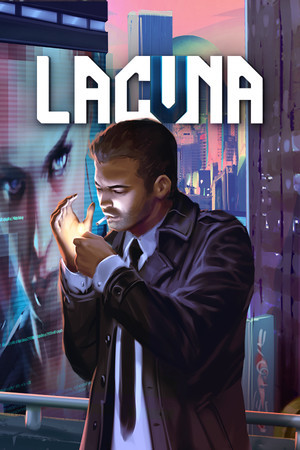
_capsule_fog__medium.png)

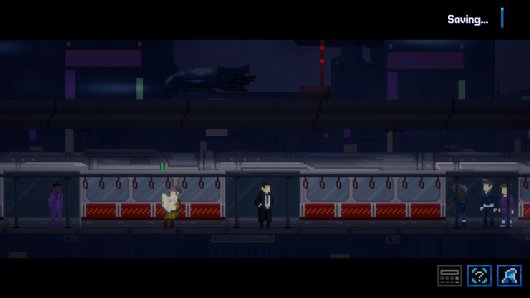

__large.jpg)



